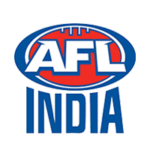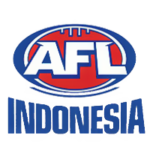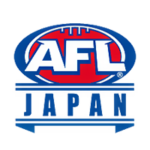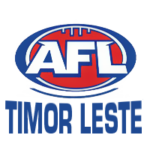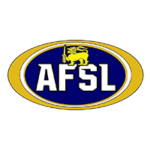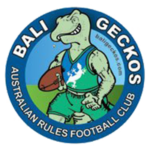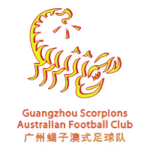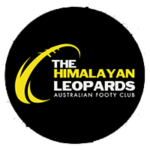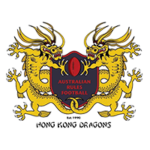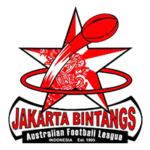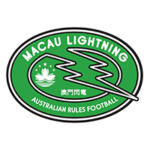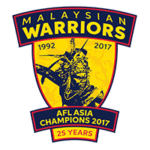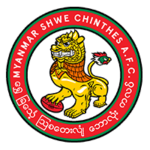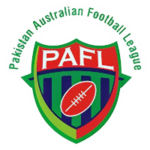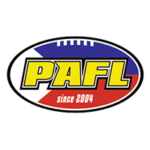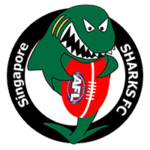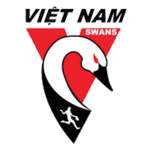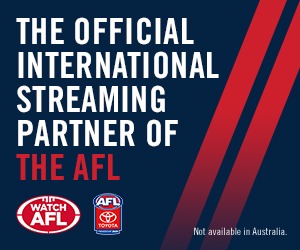AFL Asia’s very own Rob “Spearsy” Spurr uncovers the amazing journey of Indonesia’s first footballer.
The Bus to Bali
In October 2003, a busload of orphaned teens made the arduous 1000km road trip across Java.
In spite of the bumpy three-day commute ahead, the boys were excited to traverse the rich volcanic valleys of the world’s most populous island. Their final destination was Bali where they were to compete in the first ever all-Indonesian AFL fixture scheduled as part of the weekend to commemorate the first anniversary of the 2002 bombings.
The match was orchestrated through their coach and mentor Andi Dyah, Indonesia’s first footballer.
Whilst the game would have a lasting legacy, it was merely the curtain raiser for Andi’s future humanitarian efforts.
Andi
“Hi mate, before we start, can you please say hello to my colleagues?”.
It was typical Andi. With no time to respond, his screen is passed to a table of smiling colleagues, Ali from Lebanon and Rocco from Burkina Faso (which I later scramble to Google). They’re providing emergency relief work in the Grand Anse region of Haiti.
Fresh from absorbing a Presidential assassination, the hapless country has been clobbered by a 7.2 magnitude earthquake that has decimated its southern regions. Andi’s crew from ‘Save the Children’ are delivering critical water and sanitation services. Their spirits have lifted following their upgrade from a tent village to some basic hotel accommodation. They’re keen for a chat.
Once again, Andi has found himself a long way from his wife and daughter in Lyon, France. He’s even further from his family network in Indonesia, where we were teammates on the footy field in the late 90’s.
He explains that his movements in Haiti are severely restricted due to the constant threat of the ruling armed gangs that are known to target NGO workers for ransom. As if somehow comparable, he asks about my kids’ struggles during Melbourne’s extended lockdown.
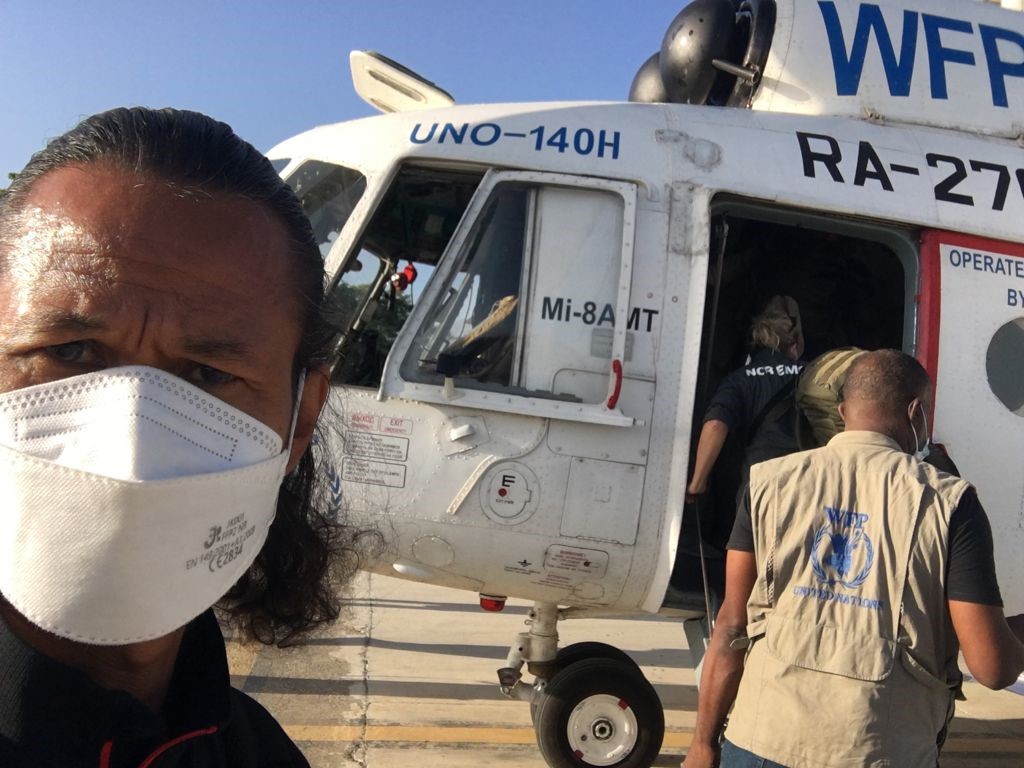
[Haiti September 2021]
Centrally located within the vast Indonesian archipelago, the Bugis traders from South Sulawesi were known historically for their ability to roam regionally aboard their majestic Pinisi schooners.
It’s clear that Andi was blessed with the ancestral travel bug. With his early schooling in Sengkang Wajo complete, a fascination with the wider world was piqued when sent for religious studies in Saudi Arabia, returning later to complete university in the urban density of Depok in Jakarta’s crowded southern outskirts.
The lure of Australia beckoned soon after and he arrived in Perth in late ’96 with a backpack and year-long Greyhound pass.
“I landed in Perth and soon discovered the place was going crazy over a strange game I’d never before seen. It was finals time and Eagles colours were everywhere. I was initially intrigued but then drawn in by the passion for the game. Within days I was hooked”
His love of the Eagles was short lived after crossing the Nullabor to Melbourne. A co-habitant in a St Kilda hostel asked about his football allegiance and was unimpressed with the response. “He grabbed me by the scruff of the collar and yelled at close range “no-one barracks for the Eagles here, you’re Collingwood now””.
Andi was duly convinced, began attending games and became a passionate Magpie devotee.
Weekend Buses to Cibubur
Arriving back in Indonesia and working a variety of jobs, Andi was introduced to the local Jakarta AFL club and began training with its core group of Australian expatriates. The club was beginning to play regular regional fixtures against teams from Bali, Singapore, Thailand and Hong Kong. Andi joined the committee and became well known for his enthusiasm, pragmatism and infectious laugh.
A handy goal sneak, he was the first Indonesian to play in an international fixture and represented his country in the expat driven Asian Championship premiership team of 2000.
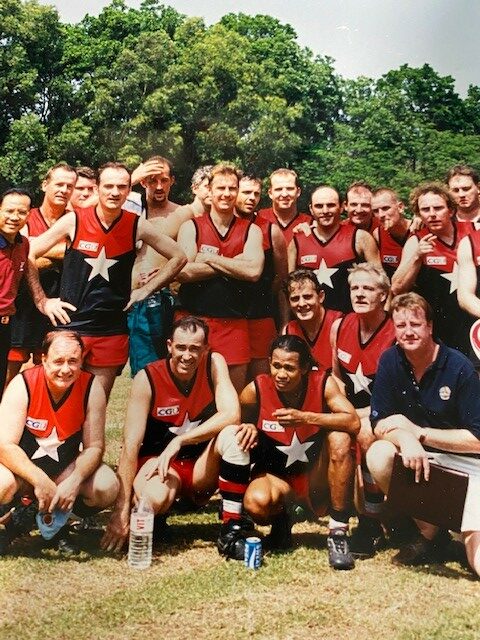
[ Asian Championships Jakarta 2000 ]
On weekends, he would arrange buses for the boys to attend the Cibubur AFL ground for training and round robin fixtures against a new team from the mountainous Pancawati district that had also taken up the game. From improbable beginnings a fledgling West Java Football League had somehow taken shape under Andi’s committed tutelage.
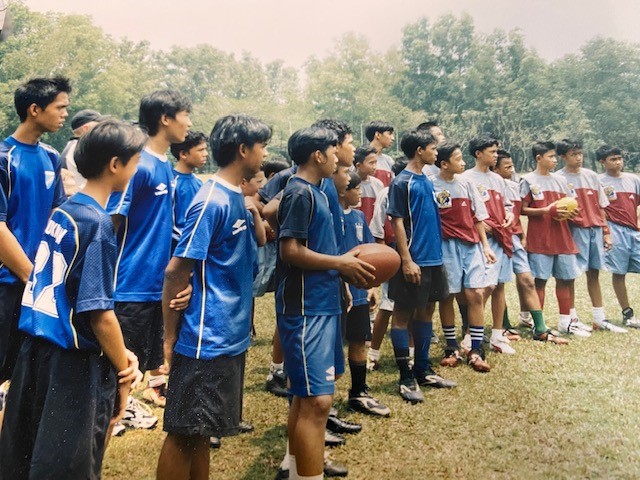
[ Depok Garudas and Depok Lions 2002 ]
The tsunami and beyond
The devastating Indian Ocean tsunami of 2004 saw Andi accept a position with the Spanish Red Cross team working to assist the inundated Acehnese communities of Meulobah, north Sumatra.
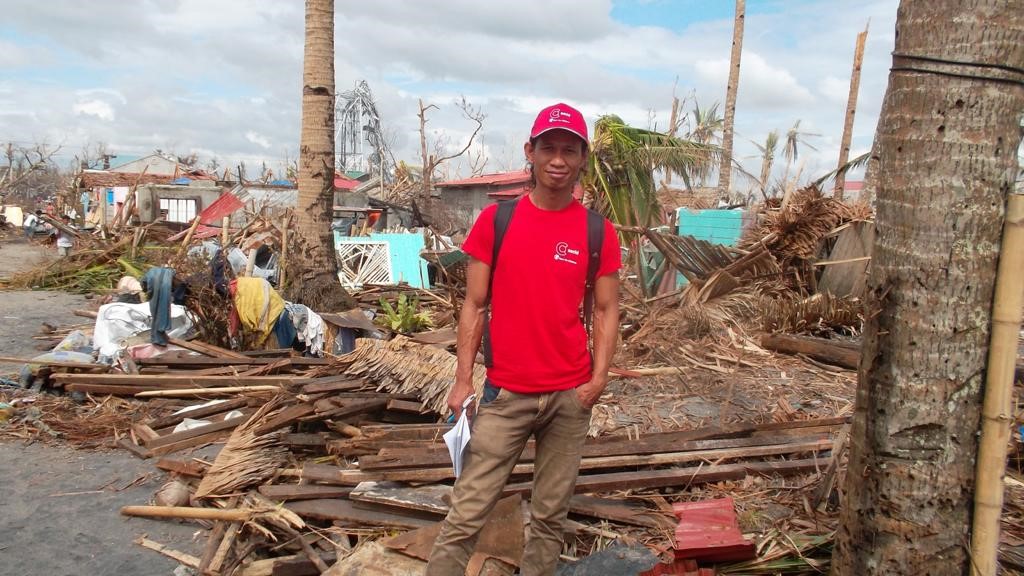
[ Aceh 2004 ]
His working resume post Aceh resembles a Lonely Planet profile of the world’s disaster zones. From earthquakes in Nepal, floods in South Sudan to the war zones of Iraq, Andi is parachuted in to deliver the most essential human need, clean and potable water. Sometimes it’s for weeks, usually for months and often for extended periods such as a recent eighteen-month assignment in the hopelessly destitute refugee camps of Raqqa, Syria where the stateless dependents of ISIS fighters languish.
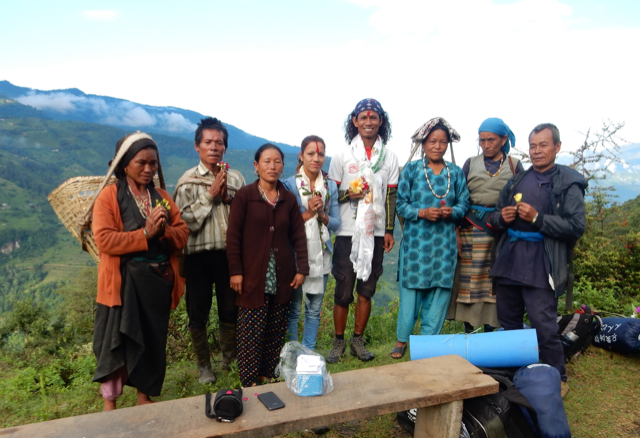
[Nepal 2015]
Closer to home he’s worked across Laos, Cambodia, PNG and Vanuatu. Other African placements include Mozambique and Kenya. His Syrian experience followed challenging missions to assist in Pakistan, Yemen and the devastating floods in Bangladesh.
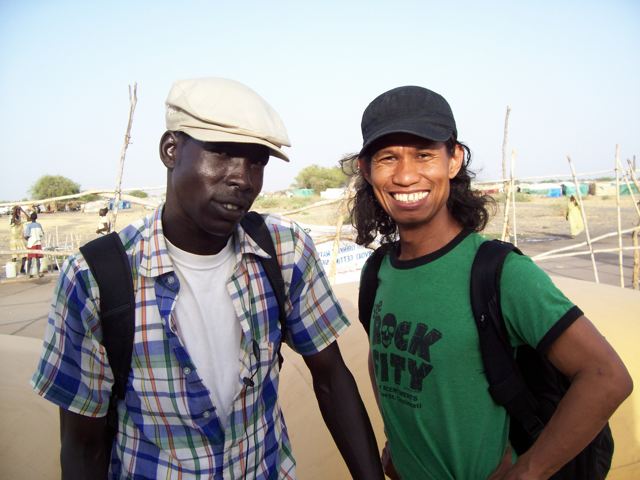
[South Sudan 2010]
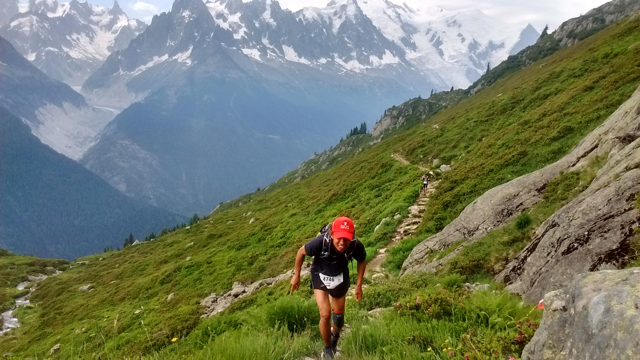
The Bus to Bali (2)
The Bali memorial AFL tournament of 2003 was played a day before the official government ceremonies. The Indonesian exhibition game was scheduled as the curtain raiser to the tournament final.
Andi’s voice rises excitedly as he recounts the details of the cramped bus trip to the game. After formalising permission to take the boys, he arranged funding for travel and accommodation through his committee friends at the Jakarta footy club.
As the bus left the outskirts of the big Durian, he soon realised the journey represented much more than a game for his passenger group. Many of the boys had been institutionalised for life, finding it difficult to leave their rudimentary confines, let alone metropolitan Jakarta. The combined virtues of sport, opportunity and human decency had provided a rare window into the possibilities existing in a world outside the choking congestion of Depok. To maximise the time, Andi had arranged some detours en-route and recalls the wonderment as the bus pulled into the imposing Hindu stupa of Borobodur temple followed by the stunning lunar landscapes of Gunung Bromo. The trip of a lifetime.
The game itself was an overwhelming success. With Prime Minister Howard, Ron Barassi, Jason McCartney and Dermott Brereton on the sidelines, the Depok outfit were pitted against a recently formed Balinese team that had also been training hard for the occasion. In stifling humidity, all pretences of an exhibition game were quickly quashed with the teams playing for regional pride.
Most important was a subtle sense of meaning the match had delivered on an otherwise sombre weekend. In stark contrast to the events of the preceding year, the sight of Indonesia’s under-privileged youth developing through a simple lens of sport and friendship presented a small but tangible vision of hope and unity.
Andi’s Depok orphans celebrated their win by sitting together on Kuta beach. Most had never seen the ocean.
The auction
My favourite memory of Andi was at the time of the 2002 AFL Grand Final that featured his beloved Magpies. I’d been in Melbourne for the week, arriving back in Indonesia in time for the Jakarta footy club’s epic 700 seat charity breakfast.
On disembarking the plane, a Chris Tarrant poster was pulled from a discarded Herald Sun and delivered to an appreciative Andi that same night. Come Grand Final morning I was surprised to see the poster beautifully framed in amongst an array of signed AFL guernseys and other genuine sporting memorabilia.
With Collingwood performing well in the game, the Pies supporters were at fever pitch by the half-time auctions. Andi’s beaming Sulawesi smile was on full display as his masterpiece attracted fervent bidding, eventually pulling in $900 for charity.
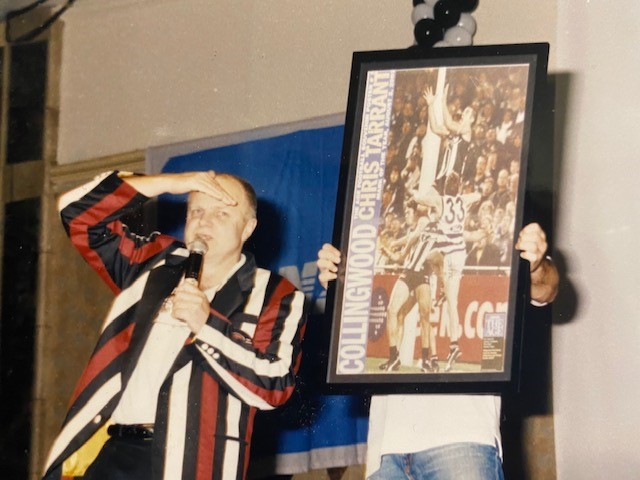
[ Chris Tarrant goes under the hammer 2002]
The success of the Bali game was the genesis for further growth at the West Java football league. The Jakarta footy club successfully applied for an AusAid grant to fund a full time AFL development coach in order to accelerate the footy program Andi had built in the schools and orphanages around Depok.
Less than ten years later, that small investment in sports diplomacy paid dividends when Indonesia sent a national team to the 2013 AFL International Cup.
Sitting excitedly on the plane to Melbourne were key position players Bombok and Dimas. Both had been passengers on Andi’s bus trip to Bali.
They were now about to fly over the same ocean they’d first seen a decade earlier.
Article also appears in the Footy Almanac.
